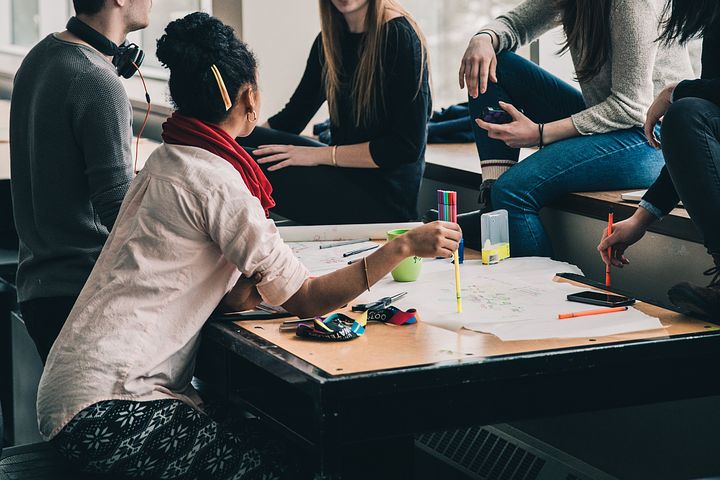My initial reason to participate on ONL course was that…I had to. I need to perform different courses relating to teaching and pedagogy as part of my ‘teaching in higher education’ training that is mandatory for my lector’s position. ONL course was basically the only option that there was currently available in English and that’s why I chose it. From the beginning, I was pleased that this seemed to be a course that is very actual considering the recent events leading to the demand of adjusting teaching to an online or blended teaching. In addition, I was happy to find a course including international networking.
By saying that I ended up to this course by obligation, I don’t mean to say that I wouldn’t be interested in developing my teaching and pedagogy. I indeed find that as an important and even rewarding part of my job. What I find challenging is how taking a course about teaching will help me to develop my courses so that it would be worth of investing all that time and effort, instead of using those resources directly for planning and developing my courses and lectures. This challenge in mind, I have tried to reflect and apply what I have read, practiced and discussed in the ONL course to my teaching throughout the course.
The most important things that I started to pay more attention during this course relates to networking and collaborating in learning, increasing engagement to learning, paying attention to the process of learning instead of focusing only to the content learned and to the ways of inviting students to different learning contexts as persons, not just as students. All of these topics are relevant both in face-to-face and online teaching, but online context makes them more challenging when many aspects of natural communication is lost, such as receiving constant subtle feedback if student are following and maintaining interest and focus and about the general spirit in the class room.
Following I will discuss and reflect these topics and some of the ideas that I will take with me for the future teaching.
How to get more out of learning diaries?
The first thing that I changed when I got a responsibility of administrating a course, was to remove ‘a traditional exam’. I felt that exams don’t guide students to study in a beneficial way. Quite the opposite – reading for the sake of an exam, often nigh before it; trying to remember things instead of understanding and critically evaluating them. Thus, I replaced exams with a learning diary, written assignments and groups works and an ‘end seminar’ where topics of the course and students’ reflections where discussed together. That seemed to work well and students appreciated this format.
Now during this semester and inspired by this ONL course, I started to think, how could I develop these assignments in order to increase the level of collaboration in learning. Often when I read students learning diaries, I think that it is a pity if I am the only person reading them. Thus, for the next course, I will ask students to read each other’s text and to provide feedback for each other. Students will get to see what others have been reflecting, hopefully encouraging them to discuss further about the topics, and they get a chance to notice if they have understood something differently and then study that question further. One possibility could be that students work in pairs so that one student is responsible of writing a summary and a reflection of the first topic and the other is responsible of commenting and refining it, and for the second topic they would change roles and so on. I have found this kind of a collaborative writing very useful when writing research papers and funding application with colleagues, so why not to apply that to teaching as well.
How to improve social connection and engagement in learning?
During the ONL course, I made some notions about myself (as a teacher and a person in general). I noticed my tendency to be very task and performance oriented, especially in the context of strict time limitations and in online meetings, with the cost of ignoring other important aspects, such as social connection. I appreciated approaches that some other group members had to our meetings, such as starting a meeting with ‘an icebreaker’ in order to build group cohesion and met other group members as ‘persons’. That was very important notion and reflection considering my teaching in general. I made a note for myself to pay more attention to inviting students as persons to the learning situations and to pay more attention to social interaction in learning groups. This is something that happens more naturally in the face-to-face class room context, but needs some extra attention and methods on online teaching.
Accordingly, now when I plan an online teaching session, I will ask myself: 1) How could I start a session so that students feel that their presence has been noticed (by me and other members)? 2) How can I communicate for the students that their contribution is important and enable possibilities to participate actively? 3) How could I help students to engage in learning in the present learning situation?
In my previous post, I discussed about connecting learning to personal values, for example by asking students to reflect “What makes this course meaningful for me?” and “Why learning this is important to me?”. This kind of a value-based approach to teaching and learning could serve all presented questions. When students are asked to reflect their values and personal meanings, they are seen as whole persons who’s experience matter.
